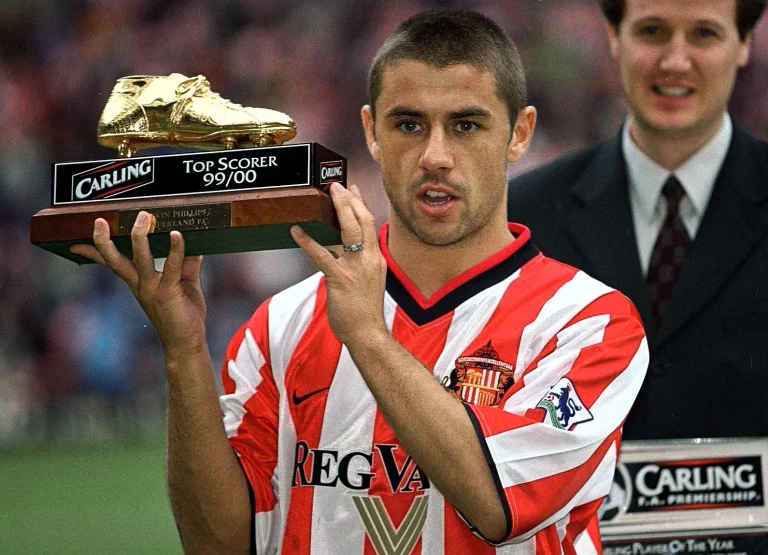he Montreal Canadiens: A Deep Dive into Hockey’s Most Storied Franchise
Introduction
The Montreal Canadiens, also known as “Les Canadiens” or “Les Habs,” are one of the most successful and revered franchises in the history of professional ice hockey. Founded in 1909, the Canadiens are the longest-running team in the National Hockey League (NHL) and have earned a reputation not only for their rich history and tradition but also for their contributions to the sport. With an astounding 24 Stanley Cup championships to their name, the Canadiens are a symbol of excellence and legacy in hockey. This article will explore the history, success, players, records, challenges, and future of the Montreal Canadiens in detail.
Early History and Formation
The Founding of the Montreal Canadiens
The Montreal Canadiens were founded by J. Ambrose O’Brien on December 4, 1909, making them one of the oldest professional sports teams in North America. The team was created to represent the large French-Canadian community in Montreal, a group that had little representation in the anglo-dominated world of professional hockey at the time. Their original goal was to provide a team for French-Canadian hockey players, giving them an opportunity to compete at the highest levels.
The Canadiens were a part of the founding teams in the National Hockey Association (NHA), the precursor to the NHL. They were originally formed as part of the growing Canadian ice hockey league structure and quickly became a staple of Canadian sports culture.
The Early Years and Stanley Cup Success
The Canadiens’ early success was evident when they won the Stanley Cup in 1916, only seven years after their formation. This victory cemented the team as a major force in the Canadian ice hockey landscape. The Canadiens’ early dominance set the stage for their long-term success.
The team’s early years were marked by fierce rivalries with other Canadian clubs, particularly the Ottawa Senators and Toronto Arenas (the predecessor to the Toronto Maple Leafs). These rivalries were vital in creating the Canadiens’ legacy as a competitive and passionate team.
The Golden Age of the Canadiens
1950s: The Rise of the Canadiens Dynasty
The 1950s are widely considered the golden age of the Montreal Canadiens. Under the leadership of legendary coach Toe Blake, the Canadiens built an unprecedented dynasty that dominated the NHL for a decade. This era is also defined by the presence of some of hockey’s most iconic players.
The Canadiens won 5 consecutive Stanley Cups from 1956 to 1960, a feat that had never been achieved before. Key players during this time included Maurice “Rocket” Richard, Jean Béliveau, Boom Boom Geoffrion, and Henri Richard—all of whom became Hall of Famers.
Maurice Richard, in particular, became a cultural icon, not just for his immense talent but also for his fiery temperament and leadership on the ice. Richard became the first player in NHL history to score 50 goals in 50 games in the 1944-45 season, and his ability to score, combined with his on-ice charisma, made him one of the greatest players of all time. Jean Béliveau also became one of the team’s most respected captains and led the team to numerous championships.
The 1960s: A Continued Legacy of Success
Following the 1950s, the Canadiens continued their dominance into the 1960s, winning an additional 6 Stanley Cups between 1965 and 1969. The team was bolstered by new talent such as Guy Lafleur, Yvan Cournoyer, and Ken Dryden. The 1960s marked the beginning of a new era for the Canadiens, one that would be built on skill and finesse, as well as a strong team-oriented philosophy.
Ken Dryden’s goaltending was legendary during this period, and his performances in the postseason helped cement his status as one of the greatest goalies of all time. Dryden’s skill, poise, and leadership in the crease played a significant role in the Canadiens’ continued success.
The Canadiens in the Modern Era
The 1970s: Continuing to Win
The 1970s saw a revitalization of the Montreal Canadiens’ success, culminating in the four Stanley Cups they won between 1973 and 1979. This period was marked by a shift in the team’s overall approach, as they focused on incorporating new stars such as Guy Lafleur, Larry Robinson, and Steve Shutt into their lineup. Guy Lafleur, in particular, would go on to become the face of the Canadiens for many years, winning multiple MVP awards and leading the team to victory in several Stanley Cups.
The Canadiens’ domination of the 1970s culminated in 1976-77, when they won a then-record 60 regular-season games, finishing the regular season with an extraordinary record of 60-8-12. Their performance during this period is still considered one of the best single-season performances in NHL history.
The 1980s: A New Generation
The 1980s continued to be a strong era for the Canadiens. Although they didn’t win as many championships as the previous decades, they still managed to capture 4 Stanley Cups throughout the decade (1986, 1989). The 1986 championship team was highlighted by the play of Patrick Roy, who became one of the best goalies in the history of the franchise. Roy’s performances in the playoffs, particularly in 1986 when he led the Canadiens to the championship as a 20-year-old rookie, established him as a future Hall of Famer.
The late 1980s also marked the rise of several important players, including Chris Chelios, Vincent Damphousse, and Guy Carbonneau, all of whom played crucial roles in the Canadiens’ competitiveness throughout the decade.
The 1990s: The End of a Dynasty and a New Era
The 1993 Stanley Cup Victory
The 1990s saw a decline in the Canadiens’ dynasty, but they were still able to capture one more Stanley Cup in 1993. The 1993 victory was especially significant, as it marked the final championship of the Canadiens’ long and storied history of dominance. The team was led by captain Guy Carbonneau, and goaltender Patrick Roy played a central role, further cementing his legacy as one of the NHL’s greatest.
While the 1990s were not as successful in terms of championships, the Canadiens maintained a competitive edge, and their fanbase remained loyal, even during tough seasons.
Key Players and Contributions to the Canadiens Legacy
Maurice “Rocket” Richard
Maurice Richard is perhaps the most iconic player in the history of the Canadiens and is considered the face of the franchise for many fans. Known for his incredible goal-scoring ability, Richard was the first player in NHL history to score 50 goals in a season and 500 career goals. His legacy extends beyond just his playing ability; he became a cultural and political figure for French-Canadian people and is still celebrated in Montreal today.
Jean Béliveau
Jean Béliveau, known as “Le Gros Bill,” was one of the greatest captains the Canadiens ever had. A member of the Hockey Hall of Fame, Béliveau was not only a skilled player but also a leader both on and off the ice. Over his career, he won 10 Stanley Cups with the Canadiens and was known for his calm demeanor, leadership, and ability to perform in big moments.
Guy Lafleur
Guy Lafleur is considered one of the best players in Canadiens history and one of the greatest wingers in NHL history. Lafleur led the Canadiens to five Stanley Cups and won the Hart Trophy as the league’s MVP twice. His combination of speed, skill, and playmaking ability was unmatched during his prime, and he remains an iconic figure in Montreal sports.
Patrick Roy
Patrick Roy’s impact on the Canadiens franchise cannot be overstated. As the team’s goaltender during their 1993 Stanley Cup victory, Roy’s brilliance in net led the team to success. After the 1993 championship, Roy would go on to have an illustrious career with the Colorado Avalanche, where he became one of the greatest goalies in hockey history.
Montreal Canadiens Today
Current Team Overview
The Montreal Canadiens remain one of the most storied and beloved teams in the NHL, even though they have struggled to win the Stanley Cup in recent decades. The team has focused on developing young talent, such as Nick Suzuki, Cole Caufield, and Jesperi Kotkaniemi, who represent the future of the franchise.
Despite their historical successes, the Canadiens have gone through some difficult periods in recent years. They have rebuilt their roster with an eye toward creating a championship-caliber team in the future. In 2021, they made an impressive run to the Stanley Cup Final, but they fell short, losing to the Tampa Bay Lightning in five games.
The Impact of Montreal and Their Fanbase
The Montreal Canadiens boast one of the most passionate and loyal fanbases in sports. The city of Montreal revolves around the team, and their fans are deeply connected to the franchise’s success. The Canadiens also have a rich history of fostering French-Canadian pride, and their influence extends far beyond the hockey rink.
Conclusion: The Legacy of the Montreal Canadiens
The Montreal Canadiens’ legacy is unparalleled in the world of hockey. With 24 Stanley Cups, the most in NHL history, and a long history of legendary players and coaches, the Canadiens represent the very essence of hockey excellence. They have inspired generations of fans and players alike, with their storied past continuing to influence the franchise’s present and future. Although the team faces challenges in modern hockey, the Montreal Canadiens remain a symbol of tradition, success, and resilience in the sport of hockey.






